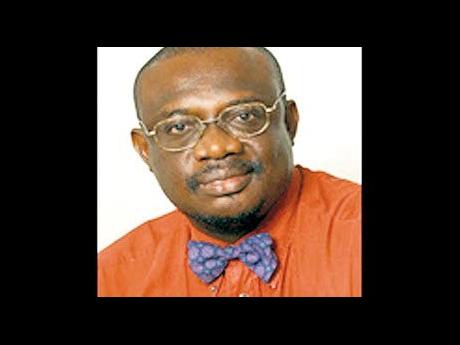Dental professionals urged to safeguard against COVID-19 - UWI’s Dr Ogunsalu wants universal protection protocols implemented
Western Bureau:
Senior lecturer at The University of the West Indies’ Faculty of Medical Sciences Dr Christopher Ogunsalu is urging his fellow dental professionals to create safe surroundings for their patients while seeking to educate them on how to safeguard against the novel coronavirus, or COVID-19.
“It is very important for dentists to assure their patients of what they have implemented to make them safe. It is important for dentists to show them the implemented measures and also to tell them that the measures are not any different from those taken when HIV emerged, that is to say, universal precautions,” said Ogunsalu.
“Apart from the fact that this new virus is virulent with an incubation period of 14 days, it can, and will, spread faster than the HIV, which needs fluid/blood to spread,” added Ogunsalu.
Because the coronavirus does not need blood to spread, Ogunsalu, who is the founder and chief executive officer (CEO) of the Montego Bay-based International Postgraduate Medical College, says that great emphasis should be placed on operating in sterile surroundings.
“The entire waiting room and all operatories and toilets must be sprayed with Lysol after the entire day’s work for the overnight decontamination of the dental clinic atmosphere and the surfaces. Individual working surfaces must be sprayed in between patients. This will mean that more work time is needed, and a new staff member may have to be employed as a prudent and vigilant sprayer. Otherwise, you must reduce the number of procedures done and the number of patients seen,” said Ogunsalu.
WASHING CLOTHES
Ogunsalu said that non-disposable clothing must be washed with hot water before the end of the day and should not be taken home as it is possible that the virus could be taken home via such items.
The lecturer, who is internationally recognised in the dental field, says that fear of the coronavirus should not prevent patients from keeping their dental appointments, especially when they are in pain or in case of dental emergencies, which can eventuate into bacterial infections, which may become worse in this current viral environment.
“Patients should not avoid the dental clinics but should attend as usual and become the auditors of the preventative methods to be implemented by their dentists. They should ask questions from the dental healthcare workers and observe that things are done properly to portray an atmosphere that is conscious to the preventing of infections,” said Ogunsalu.
While noting that the preventive measures of universal protection as it relates to the human immunodeficiency virus must be observed, Ogunsalu said that other stringent measures that were not in place for HIV must also be observed. He gave the following advice: There should be one headpiece per patient. No polishing should be done with a rotary instrument. Polishing can be effected manually and patients advised to use a electric toothbrush. The use of ultrasonic scalers must stop for now, and scaling must be effected by the use of manual scalers.
With regard to those government dental facilities that are not up to the recommended standard, especially with regard to the use of one dental headpiece per patient, Ongunsalu is recommending that such facilities be closed until the ideal conditions are met. He is also discouraging unnecessary visits to these facilities.
“It is very important that at this present time, unnecessary visits to the dental office should be discouraged. Consultations and reviews, including enquiries, can be done electronically via WhatsApp, which everyone now has,” noted Ogunsalu.

